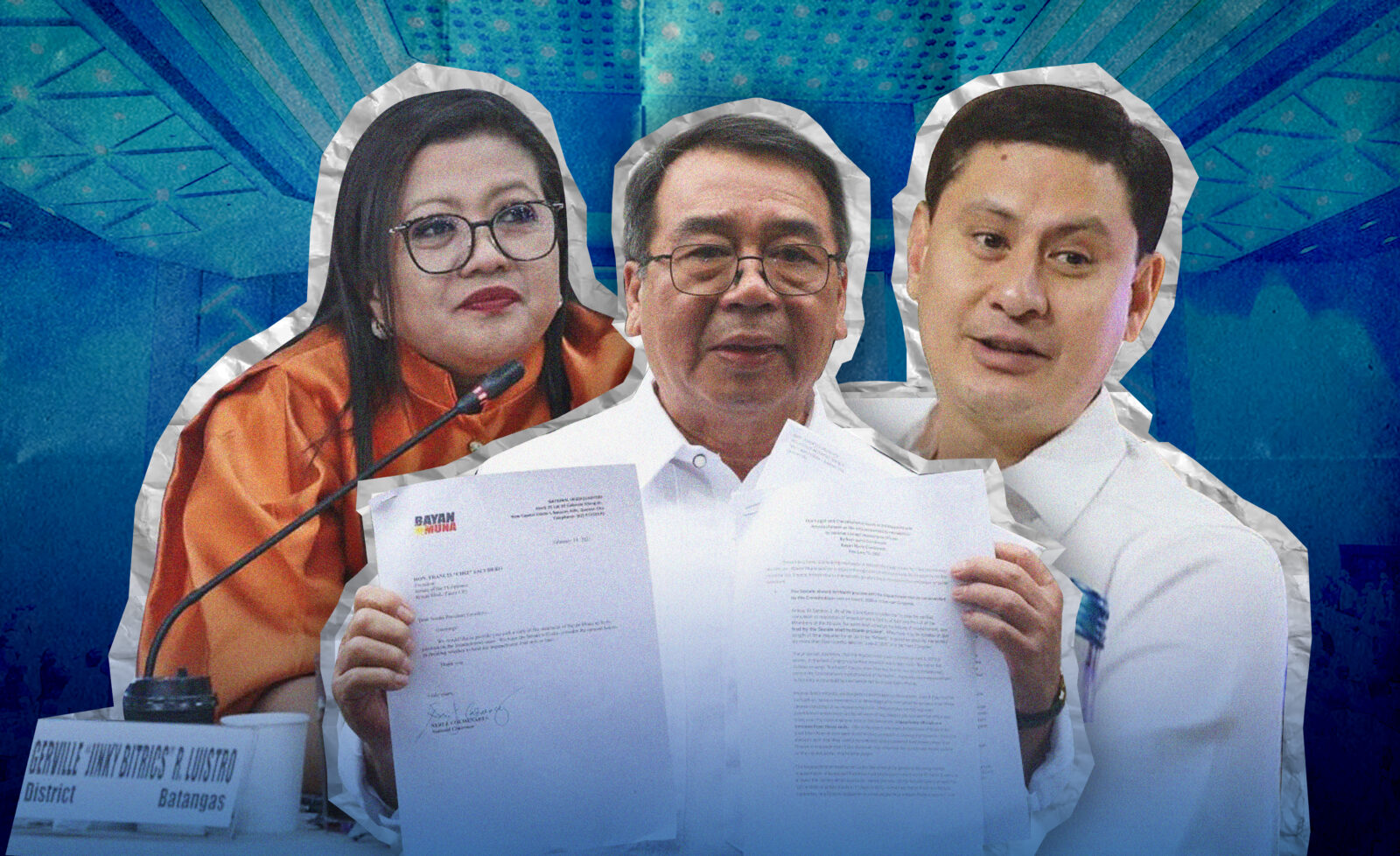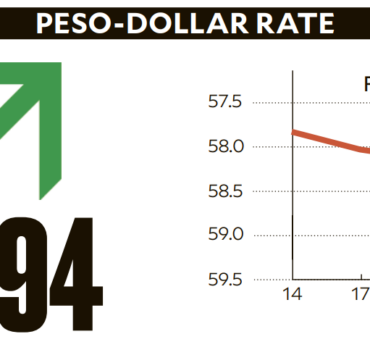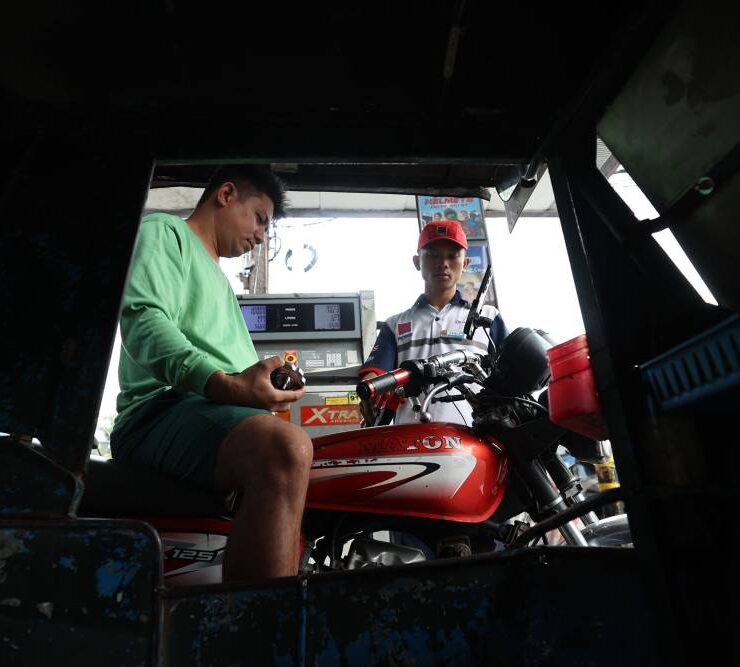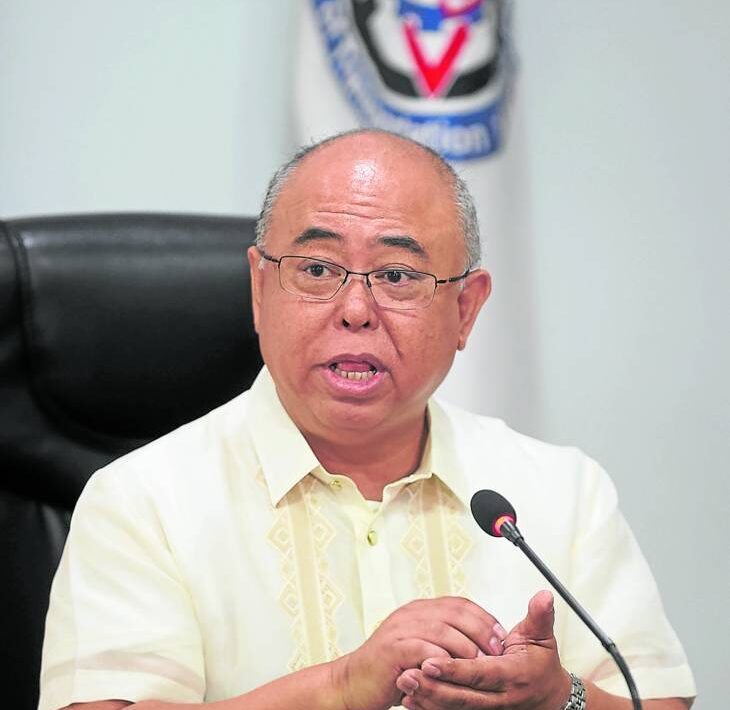House members assert: ‘Impeach’ rule followed

- The impeachment was legal and constitutional, said Batangas Rep. Gerville Luistro, a member of the House prosecution panel — contrary to the Supreme Court complaint filed by VP Sara Duterte that it was defective.
- Luistro said that the first three complaints filed by civil society groups were not formally referred to the House committee on justice for deliberation, which would be one way to initiate the impeachment process.
- The prohibition period would only take effect in February 2026, one year after the fourth complaint was signed by more than one-third of the House, which was a quicker way of impeaching an official, she said. The lawmakers found the first complaint—which cited 23 articles of impeachment—too long, and the second and third too short.
One of the 11 House members chosen to prosecute impeached Vice President Sara Duterte in her Senate trial on Thursday asserted that the impeachment complaint being questioned in the Supreme Court was legal and constitutional.
In two separate but similar petitions last Wednesday, Duterte and some of her supporters asked the high court to stop her trial, arguing that the complaint transmitted to the Senate on Feb. 5 was the fourth received by the House since December, supposedly in violation of a constitutional rule prohibiting more than one impeachment proceeding against the same official within a one-year period.
But Batangas Rep. Gerville Luistro, a member of the House prosecution panel, said that the fourth impeachment complaint signed by more than 200 lawmakers did not violate the one-year bar set by the 1987 Constitution.
She said in a television interview that the first three complaints filed by civil society groups in the office of the House secretary general were not formally referred to the House committee on justice for deliberation, which would be one way to initiate the impeachment process.
But in this case, the prohibition period would only take effect in February 2026, one year after the fourth complaint was signed by more than one-third of the House, which was a quicker way of impeaching an official.
“The only occasion when we can do away with the referral of the justice committee is if the complaint is supported by one-third of the members of the House,” said Luisro, a former state counsel.
‘More robust’ complaint
“The first three did not have the endorsement of one-third, which means it needed to be referred to the House justice committee, which would hold hearings until 60 days to be able to resolve whether the impeachment complaint is resolved or not,” she added.
Another House prosecutor, Iloilo Rep. Lorenz Defensor, earlier said that it was only when party leaders agreed to draft a new, “more robust” complaint that finally set Duterte’s impeachment in motion.
Luistro said the lawmakers found the first complaint—which cited 23 articles of impeachment—too long, and the second and third too short.
She said that after assessing the first three complaints, “we came up with a decision—come up with a fourth impeachment complaint, and save the impeachment process from the possible prescription period, and that is one year.”
In their petitions, Duterte and her supporters argued that Congress already took an initial action by deliberately freezing the three complaints to pave the way for the fourth complaint.
Clarified in SC ruling
But lawyer and senatorial candidate Neri Colmenares said that the one-year prohibition rule was clarified in a 2003 Supreme Court ruling, which stated that “initiating” an impeachment meant the referral of the complaint to the House committee on justice.
He said such clarification from the high tribunal rendered the petitions against Duterte’s Senate trial “untenable.”
“All the three complaints have not been referred to the Justice Committee and are therefore not deemed initiated. There is therefore no violation of the one-year bar in the Constitution,” said Colmenares, who served as a prosecutor in the impeachment trial of former Chief Justice Renato Corona and in the aborted trial of former Ombudsman Merceditas Gutierrez.
Luistro also denied allegations by Duterte’s supporters that the complaint did not go through a rigorous verification process since the House members who supported the impeachment signed the same day the document was brought up in plenary and subsequently transmitted to the Senate.
“Let us all be reminded, most of the grounds were already the subject matter of the investigation in the quad comm and even in the committee on good government,” she said.
Luistro said that when the three other impeachment complaints were filed, the congressmen “already had their individual evaluations” of the committees’ findings.
“It was because of the intercession of the political parties that made us team up with this fourth impeachment complaint to be able to catch up with the limited number of sessions that were remaining, saving the impeachment process from the alleged one-year prescription period,” she said.
Koko: Trial can start March
At the Kapihan sa Senado Forum, Minority Leader Aquilino “Koko” Pimentel III urged Senate President Francis “Chiz” Escudero to call for a caucus to decide on the timeline of Duterte’s impeachment trial, believing that the trial could start as early as March.
Pimentel stressed the need for his colleagues to focus attention also on their duty to hold the impeachment trial, not just other concerns, particularly the campaign for the 2025 midterm elections.
The caucus will be an opportunity for the senators to present and explain their respective position on the matter, he added.
Pimentel said his own position was that the Constitution and the Senate rules on impeachment did not require the chamber as a legislative body to be in session to act.
Escudero on Wednesday stood firm on his position to wait for Congress to resume session on June 2 before holding the impeachment trial despite calls from various legal experts, politicians and civil society leaders.
Chiz timeline ‘too far’
Pimentel said that Escudero’s timeline was “too far” from the day the impeachment complaint was transmitted to the Senate.
He added that the Senate’s mandate to convene as an impeachment court immediately was anchored on strong legal grounds, particularly the Constitution and the Senate rules on impeachment.
“Yes, we should be cautious in our actions, but not too cautious that we already destroy the meaning of the word ‘forthwith.’ That is a normal language which means immediately, or without any delay,” Pimentel added.
He said the senators, particularly those busy with the campaign, would have to focus on the impeachment trial and make it a priority.
But if a majority of the senators opposed his proposal of proceeding immediately with the trial, they should also let the public know, Pimentel said.
Lawyer and 1Sambayan convenor Howard Calleja said Escudero may be culpable of “constitutional breach,” for failing to act “forthwith” to convene the impeachment court when the Senate leader allegedly prematurely adjourned the Senate session with two days left on its legislative calendar.
‘Nabudol tayo’
“Nabudol tayo ni Chiz (Chiz fooled us). Just when we are talking of billions of pesos being lost to alleged corruption, just when Sara threatened to have the President and the First Lady killed, which would have created unimaginable national instability, here he is trying to foist on us a scenario calculated to kill the impeachment of Sara Duterte. Chiz would not do this without benefiting himself,” Calleja said.
The Inquirer has reached out to Escudero’s office for comment but it has yet to respond.
Who benefits?
Citing a Senate resolution, Calleja noted that the Senate calendar was supposed to end on Feb. 7, but it adjourned on the same day that it received the articles of impeachment.
He said that only Duterte benefited from Escudero’s premature adjournment.
House Deputy Minority Leader France Castro also lambasted Escudero’s stance and his statement questioning whether there was a “clamor” to start the trial immediately.
“The convening of an impeachment court is not contingent on public clamor,” the ACT party list representative said.
“It is a constitutional mandate,” Castro said. “Senate President Escudero misses the point entirely when he asks ‘What clamor?’ This is not a cheering contest but a matter of constitutional duty.” —WITH REPORTS FROM TINA G. SANTOS AND JEANNETTE I. ANDRADE




















